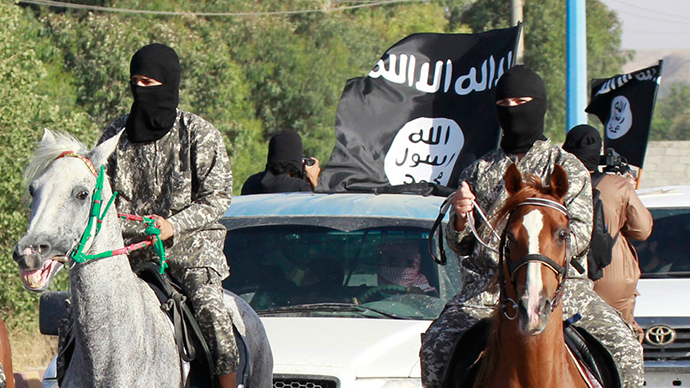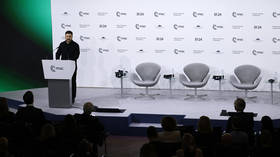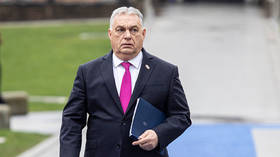‘US air campaign against ISIS creating more jihadists’

As Islamic State forces make dramatic advances in both Iraq and Syria, the US Defense Department is making a scapegoat of Iraqi forces, which has been criticized for lacking the will to fight the jihadists, security analyst Ivan Eland told RT.
RT:Is US Defense Secretary Ashton Carter making a fair point in blaming Iraqi forces for their setbacks against Islamic State [IS, formerly ISIS]?
READ MORE: ‘No will’ to fight ISIS? US Defense Sec blasts Iraqi troops
Ivan Eland: He is probably making them a scapegoat. Although, it is true [that] they didn’t want to fight there. The Iraqi Army is dominated by Shia and they are fighting in a Sunni area. So they don’t want to get killed for this reason, for what they are fighting for. So yes, they don’t want to fight, but that is not surprising.
The real root of the problem is when the US invaded in the aftermath they dismembered the Iraqi Army and it has never been the same since. We had eight years of US training. But the problem is you have a lot of sectarianism which is on display here and also you have a lot of corruption in the Iraqi military that has been created. The roots of the problem lie much deeper. Unfortunately, a lot of this was caused by the US invasion and dismantlement of the original Iraqi army.
RT:Following recent setbacks last week in Ramadi and Palmyra, the White House is reportedly rethinking its strategy against IS. What options does it have?
READ MORE: SIS kills 400, mostly women & children, in Palmyra – Syrian state TV
IE: They are not very good. What you need is a ground force, so they can fix the enemy in place so you can bomb them. Also you need advisors down there to call in the airstrikes. But the US doesn’t want to get involved on the ground anymore. This bombing without US forces on the ground to identify targets and stuff is not that effective.
In fact, it is counterproductive - it is creating more jihadists because they accidently hit civilians, and that sort of thing. So the strategy is really flawed. The problem is, the only ground force is available are the Kurds, which are reliable near Kurdistan to defense their own territory. They have incentive to do that.
The second option since the Iraqi army has no incentive to fight there because they are mainly Shia. You have the Shia militias. Now some of them are willing to fight and are better than the Iraqi army. But again, you have this sectarian problem that if they send them into the Anbar [Province] – and they may well have to out of desperation – they may take retribution against the Sunnis. And in the long term that could cause a sectarian civil war that dwarfs the war that is going on there now. The sectarianism is at the root of all of these problems, at least most of it.
MORE:
The statements, views and opinions expressed in this column are solely those of the author and do not necessarily represent those of RT.
The statements, views and opinions expressed in this column are solely those of the author and do not necessarily represent those of RT.












